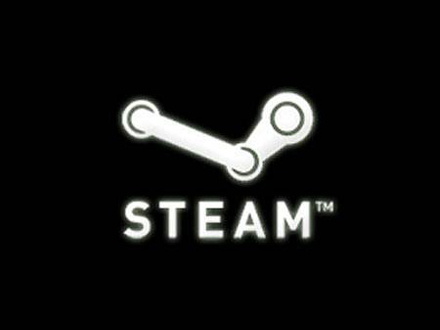
Strongest condemnation yet of anti-counterfeiting, 'three strikes' from EU
The European Parliament today overwhelmingly voted in favor of a resolution compelling participants in multi-national negotiations over the proposed Anti-Counterfeiting Trade Agreement (ACTA) to report on the status and substance of those negotiations, first to Parliament and eventually to the general public. This after a groundswell of public concern arose in the wake of documents purporting to be official ACTA material, the latest leaked by Wired last November (PDF available here from Wired), spoke of US negotiators' requests to include terms in the final Agreement that would force Internet service providers to police the content trafficked over their pipelines, or else face penalties.
A statement issued from Parliament this afternoon records the final vote as 633-13-16 in favor of the resolution, the motion for which (DOC available here) was drafted just yesterday on behalf of six of the continent's political parties and alliances, including Greens/EFA. That motion referred to the leaked documents by name, effectively confirming their legitimacy.

Google Maps now generates bike routes
Different modes of travel often require different routes to be taken. If you're walking somewhere, for example, you're not likely to take a highway to get there, and you have the distinct advantage of being able to go through certain structures that cars cannot. The same goes for biking. When someone is planning to get somewhere by bike, they're going to demand different routes. This is why the Google Maps team today announced that it has added bicycling directions to Google Maps.
Shannon Guymon, product manager for Google Maps said, "We wanted to include as much bike trail data as possible, provide efficient routes, allow riders to customize their trip, make use of bike lanes, calculate rider-friendly routes that avoid big hills and customize the look of the map for cycling to encourage folks to hop on their bikes. So that's exactly what we've done."

Google unveils its cloud-based Apps Marketplace, wants 20% revenue share
Tuesday evening, during an event televised over YouTube called Google Campfire One, Google executives lifted the curtain on its cloud-based Apps Marketplace for PC-based applications, with the promise of opening its online store with 50 charter vendors later in the evening. The Marketplace is designed to feature applications that integrate with the company's existing Google Apps, Gmail, and other cloud-based services.
Google Vice President of Engineering Vic Gondotra told attendees at the company's headquarters that the company plans to utilize very simple terms of service. Think of a garden, but more with clearly marked paths as opposed to walls. Extending the concept of the Android Marketplace from handsets to computing devices, the company is inviting developers to build applications using its Studio tool, then deploy those apps by way of the Marketplace. Each developer is asked to pay a $100 sign-up fee, and then give Google a 20% revenue share for sales, at whatever price the developer charges. (We have not seen yet whether there will be a price cap.)

Samsung launches its eReader, connects with Barnes & Noble
After showing a prototype of its first electronic reader at CES in January, Samsung on Tuesday officially rolled out the new device, spilling all the details about the final feature set while also unveiling a new partnership with Barnes & Noble.
Unlike other gadgets in the increasingly crowded field, the Samsung eReader lets people make notes in the margins of e-book pages, pointed out Vickie Cullen, a Samsung spokesperson, at a press event in New York City where the company launched a number of CE products including this device, 3D TVs, and a 3D Blu-ray player.

Get your glasses ready: Samsung soars into the third dimension
At a press conference in New York City on Tuesday, Samsung unveiled new 3D products that include six HDTV series, a Shrek 3D movie, and a DVD player designed to handle 3D along with regular Blu-ray and standard DVD disks.
Samsung's initial 3D TV line-up -- which requires 3D glasses for viewing - ranges from the LED 7000/8000/9000 Series to the LCD 750 Series and the Plasma 7000/8000 Series.

American cities fight for Google's attention
One month ago, Google put the word out that it was looking to build and test its own fiber-to-the-home networks in a couple of cities. The speeds would be up to 1 Gbps and the reach would initially be about 50,000 homes.
Immediately, hundreds of cities began making pitches to attract Google's attention, some earnest, some outlandish.

Almost #3 now: Dell's decline is Acer's gain
With the economic sinkhole of 2008-09 now a figment of many technology companies' past, most PC manufacturers are back on their regularly scheduled growth curve. Last month, Dell had indicated to investors that it was returning to that curve as well, reporting "product shipments...up at double-digit rates year-over-year" during its end-of-fiscal year 2010 earnings report.
According to iSuppli, which tracks worldwide PC unit shipments, that Dell claim -- which not a single analyst even questioned at the time, according to Seeking Alpha's transcript of Dell's February 18 earnings conference -- gives "plus or minus" a whole new meaning. The market analyst firm's statistics on full-year unit shipments, published today, show Dell's numbers declining by 9.946% during calendar year 2009. Dell's fiscal 2010 began in February 2009, so iSuppli's numbers cover most of that period plus January 2010 -- in a quarter where Dell actually recovered slightly.

That wasn't supposed to happen: IE usage share steady since choice screen
The window of opportunity may be closing for the first test of government mandated fairness and equal choice among Web browsers, with neutral results.
There are a number of studies recently that say computer users in general have a tendency to automatically distrust notices that pop up on their screen. More attention was paid to those studies since last March, after Microsoft's deployment of Internet Explorer 8 over Windows Update was followed by a general downtrend in IE usage, interrupted by a brief respite in early October, according to global tracking data from analytics vendor StatCounter.
If what Microsoft's security representatives have said is true -- that the key window for adoption of an update or patch usually comes a few days after Patch Tuesday -- then StatCounter's tracking data for IE usage in Europe could count as sweet revenge. Since Microsoft deployed its browser choice screen for European users, in compliance with European Commission directives, on March 1, StatCounter reports European usage share for all versions of Internet Explorer has stayed steady at about 46.6%, with negligible gains since the beginning of the month.

Sony proves PS3 is still a movie machine with HD content from all major studios
Sales of Sony's PlayStation 3 have lagged behind Nintendo's Wii and Microsoft's Xbox 360 for most of this generation, and the PSP and PSP Go now face a serious threat from Apple's iPhone OS-based handhelds. Despite these factors, though, Sony has managed to set up one of the strongest Web-based storefronts for digital content distribution to its consoles. Offering full downloadable games, add-ons, XMB customizations, game trailers, and HD Hollywood feature films and television episodes for rent or purchase, the PlayStation Network is an attractive and easily navigable repository for media on Sony game machines.
It's a shame that setting up and hosting online games for the PS3 isn't as simple as its store.

Samsung reveals just how expensive 3D in the home is going to be
At CES this year, every major consumer electronics company involved in the HDTV market had floorspace dedicated to 3D TVs. They were convinced that 3D in the home is ready for widespread adoption, and the popularity of James Cameron's Avatar would kickstart adoption.
Samsung today announced its full 2010 3D TV lineup, which shows just how expensive it's going to be to upgrade your home theater to the third dimension.

Welcome back to the big leagues: Opera denies severity of 10.5 exploit
12:02 pm EST March 9, 2010 · A spokesperson for Opera Software provided Betanews this morning with a summary of a complete blog post on the alleged exploit of Opera 10.5, published moments ago:
"The original report about the Windows-only malformed Content-length header problem is not a security issue, but a variant of the issue, brought to our attention by Secunia, has a theoretical possibility of allowing arbitrary code to run. We have developed a fix for the problem, which is being tested, and are planning to release an update of Opera soon. Until then, if Opera crashes on an untrusted site, you should avoid visiting that site again."

Latest HTML5 working draft published despite claims of 'sabotage'
Should the next version of HTML, the Web standard that embodies how pages are laid out and constructed, include explicit specifications for inline, 2D dynamic graphics? There's valid arguments on both sides. One side believes that the ability to plot charts and animations would have been part of the original HTML standard anyway, had the technology existed on the back end in the beginning; giving HTML 2D graphics now, they say, plugs a hole left open for too long. Another believes the HTML5 standard should simply specify an API for plug-ins, to let separate groups of engineers evolve a methodology for plotting graphics at their own pace, and on their own track.
From one angle, the debate appears as innocuous as this: Should graphics be considered within the scope of a markup language, or not? But any debate on the topic of Web standards development has never sustained continued viewing from one angle alone. From another angle entirely, one can't help but notice that the principal advocate of letting the so-called Canvas element be developed separately, is an engineer with Adobe, which has more than the average stake in the outcome of Web graphics development.

PC gaming service Steam ported to Mac, lets users buy titles on both platforms at no extra cost
Valve Corporation's Steam is the leading digital distribution channel for PC games. With over 1,000 titles available for purchase, an integrated social network and database of open game servers, Steam has attracted more than 25 million users since launching in 2003.
Today, Valve officially announced Steam will be coming to Mac in April, along with Source, the 3D gaming engine used in popular games such as Half Life 2, Team Fortress 2, and Counter-Strike.

10 things Microsoft did right in 2010 (so far)
It's throw-Microsoft-a-bone Monday, not that I can promise much meat on it. Microsoft may have fallen behind in mobile, been talking about a three-screen strategy off of two screens, and clumsily competed as usual, but some early 2010 actions deserve at least a little praise. So here's where I give it.
First, some context. There's doing right -- and there's doing right. Some of the stuff here I'll assert Microsoft did right I previously dinged the company for getting wrong. That's because what's right for Microsoft might be wrong in a greater competitive landscape, like taking right action A too slowly or not soon enough. With that introduction, here are 10 things Microsoft has done right in 2010 (so far), presented in no order of importance. Microsoft...

Verizon claims 5-12 Mbps 4G LTE service in 25+ markets, but where's the hardware?
Still racing for an LTE launch in the second half of this year, Verizon Wireless has been testing its trial 4G Long Term Evolution (LTE) networks in Boston and Seattle since last August.
Today the wireless network operator says it will be able to deliver speeds between 5-12 Mbps downlink and 2-5 Mbps uplink at launch.



